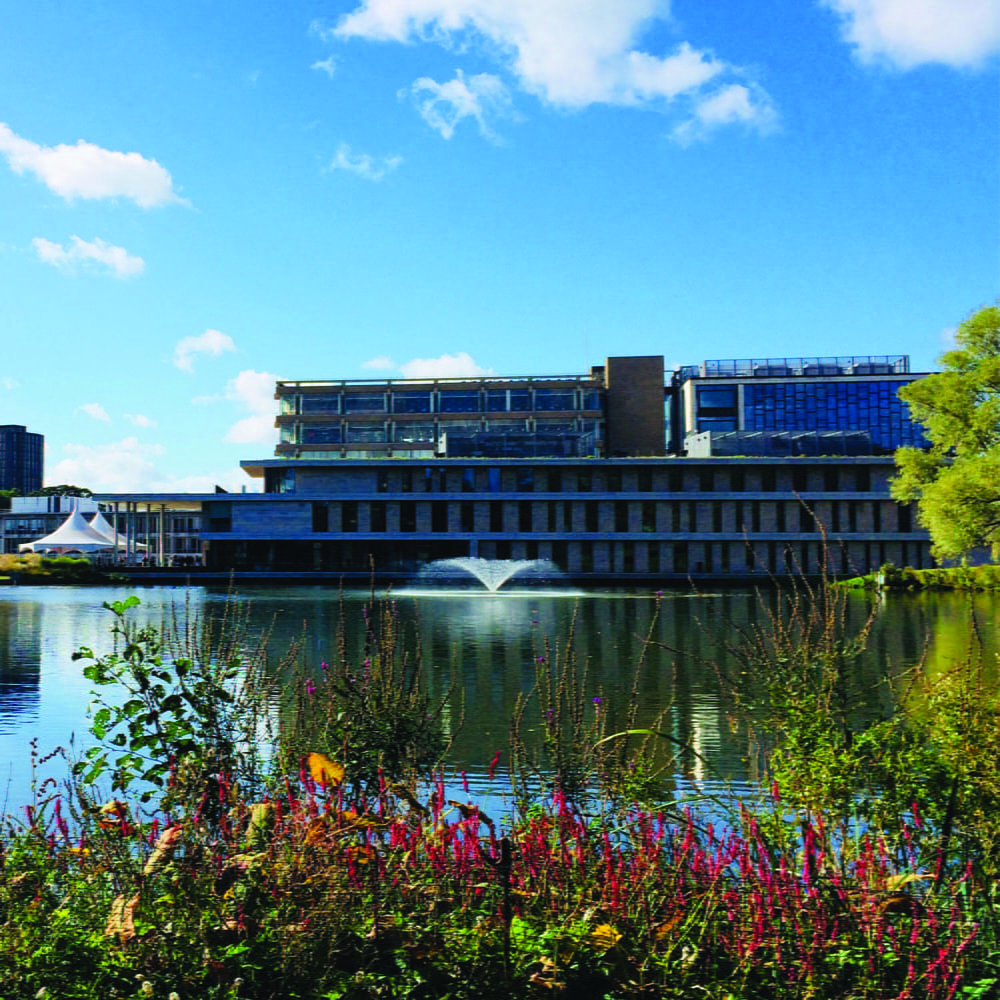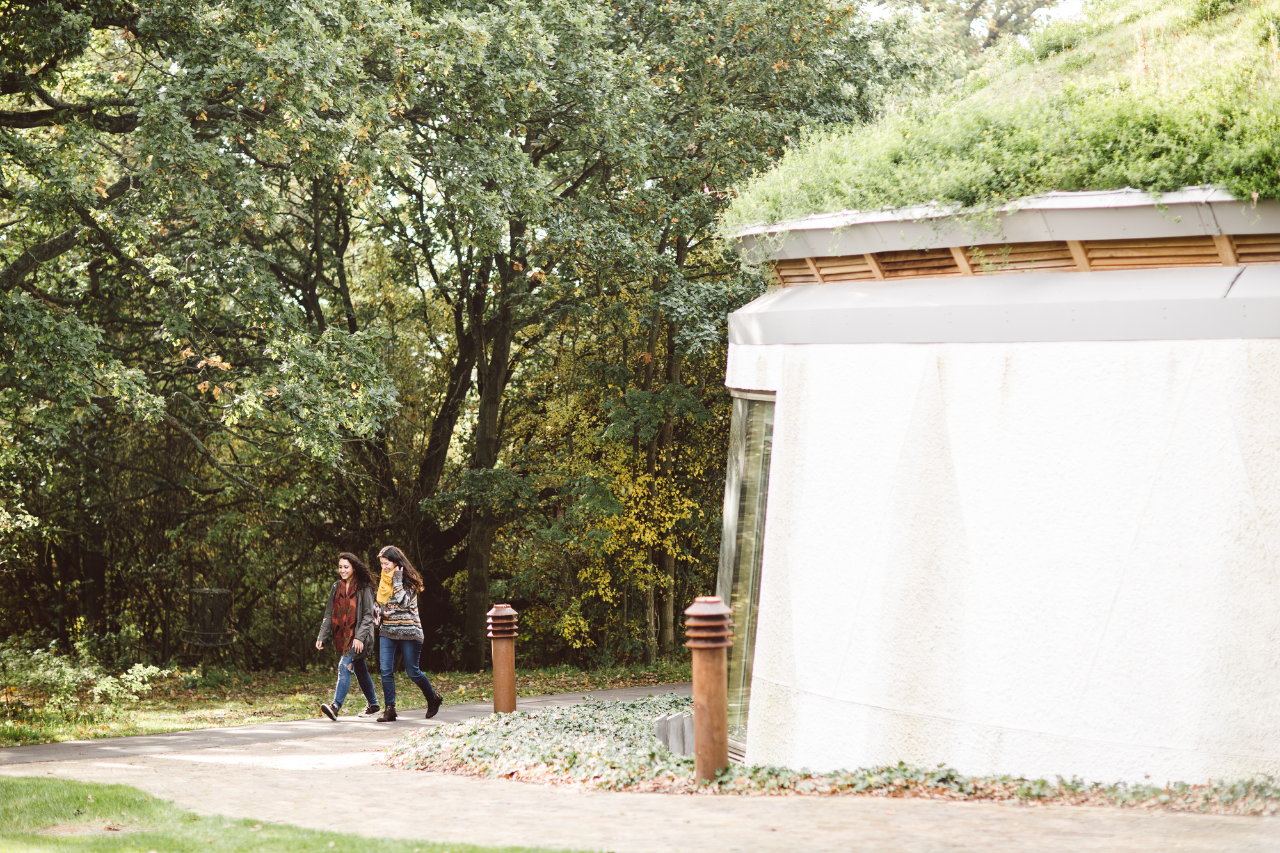Highlights from the 2025 Sustainable Essex Awards

Last month we celebrated those who embed sustainability into their work at the Sustainable Essex Awards. Several departments and students across our campuses came together to be recognised for their projects that contribute to our Sustainability Sub Strategy areas. As a sustainability event we have to consider sustainable choices at all aspects of event planning, as a result we wanted to share the sustainability credentials of our event and to help those wanting to plan an event with sustainability in mind.
Rethinking the Awards
This year we wanted to redesign our awards to work alongside our new award levels; bronze, silver, gold and platinum. Our new awards meant new trophy designs, and we wanted to reflect that Essex feel while incorporating environmentally friendly practices.
Our awards were 3D printed this year meaning they were made from polylactic acid or polylactide (PLA) which is a renewable biomass typically from fermented plant starch like corn, cassava, sugarcane or sugar beet pulp. Environmental considerations were not just part of the production process; our trophies were made locally in Colchester further reducing the carbon footprint of their transportation.
Sustainable Styling
Sourcing decorations for an event sustainably and on a budget can be tricky. Working with our Edge Hotel Students; Misato and Chelsy we were able to source decorations from Wivenhoe House Hotel and reuse decorations rather than buy new. We also enlisted the help of smalls ads and our wonderful university community to borrow office plants to give our event space that nature feel.
As part of our regular practice we additionally used undated materials like we do for each event to be reused again and again, this included our SDG icons and our new icons designed to illustrate each of our Sustainability Sub-Strategy topic areas.
A Plant-Based Menu
To reduce our event’s carbon footprint even further we chose to have a vegetarian and vegan menu only. Eating more plant-based alternatives require fewer resources like water and land and produce lower greenhouse gas emissions compared to meat production. Making these small changes can make a big impact on the carbon footprint of an event.
Celebrating our Winners
This academic year has been nothing short of inspiring. With 31 teams participating in our awards,25 staff teams and 6 student teams. We’ve seen incredible commitment, creativity, and collaboration across the board.
Our teams worked hard to make meaningful changes, and their efforts were recognised through our tiered award system:
Bronze: 9 teams
Silver: 8 teams
Gold: 9 teams
Platinum: 7 teams
Two student teams also went above and beyond, achieving both Bronze and Silver awards, a fantastic accomplishment.
Every team brought something unique to the awards, initiatives included departmental food swaps, decluttering and redistributing items across campus for reuse, installing new beehives at Wivenhoe House Hotel and raising awareness and encouraging behaviour change across our campuses.
Our Platinum award winners were recognised for their exceptional efforts in creating a project that leaves a legacy and has a lasting impact on sustainability at Essex. Take a look below to see our winners and their projects:
The Edge Hotel School were awarded with two Platinum awards this year. Their student and staff team organised a food waste event, which included workshops on food waste reduction and a campaign for reducing food waste, collaborating with external stakeholders such as the Essex Climate Commission. The team even featured on BBC Essex Radio to discuss food waste. Their staff project promotes reuse through 'Uniform Reform', encouraging students to return old uniforms for reuse by new students.
The Estates Management team earned a Platinum award for redistributing over 60 unused office furniture items and installing 1,300 tap flow restrictors in Colchester accommodation.
Essex Business School’s staff and student team, in collaboration with the Brightlingsea Steering Group Committee, are investigating community-led decision-making in the development of a neighbourhood plan that integrates environmental sustainability into urban and rural planning.
DerwentFM received a Platinum award for their Project Move Out, creating a reuse area at the Copse and Quays accommodation. This area allows students to take items for their accommodation free of charge to reduce the amount of items they have to buy new.
The Outreach team designed the 'Greenest Generation', an event that promoted Green Skills and careers in the Green Sector to local schools and colleges.
Our Soft FM Operations team were awarded Platinum for their commitment to the cleaning and portering award, redistributing and reusing office stationery and for sharing their ideas for improving university waste streams.
If you're planning an event and want to make it more sustainable—or if you’ve already hosted one and want to showcase your efforts—we’d love to hear from you!
Get in touch: sustainability@essex.ac.uk
Together, we can continue to build a culture of sustainability at Essex—one event at a time.



